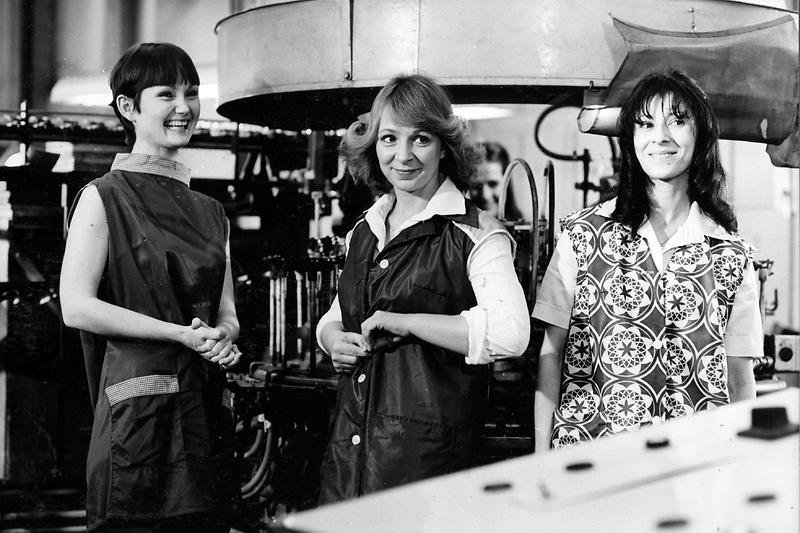
Alle meine Mädchen
Alle meine Mädchen

A documentary about a women's work brigade; who wants to watch that in the evening? At least that's what Ralf, the directing student tasked with shooting the film, asks himself. Yet as soon as he arrives at the factory, he finds himself fascinated by this women's collective. The working rhythms and the balance of power inside the factory, as well as the diversity of characters and opinions ensure that the group’s coexistence isn’t always an easy one. This episodic film not only captures the everyday life of the workers, but also portrays the protagonists as individual personalities, each with their own hopes, desires and dreams.
Obenkino: original version with English subtitles.
Wed, 9.11., 20:30 at Glad-House: SlowTalk "Woman in Socialism and beyond", with director Iris Gusner.
Iris Gusner, Günter Haubold
Günter Haubold
Peter Foerster, Wolfgang Großmann
Gabriele Kotte, Dieter Adam
Baldur Böhme, Orion (Musikgruppe)
Lissy Tempelhof (Meisterin)
Madeleine Lierck (Susi)
Barbara Schnitzler (Anita)
Viola Schweizer (Kerstin)
Evelin Splitt (Gertrud)
Monica Bielenstein (Ella)
Klaus Piontek (Reinhold)
Wolfgang Dehler (Lauterbach)
Fritz Marquardt (Pachnin)
Heide Kipp (Frau Wicker)
Jaecki Schwarz (Bruns)
Carmen-Maja Antoni (Fremde Meisterin)
Rosemarie Gerber (Die Neue)
Gertraud Kreißig (Krankenschwester)

Iris Gusner - Iris Gusner is one of the few female feature film directors of DEFA. Her career is anything but straightforward. Her first own film is banned, one of her submitted scenarios lies in the drawers for more than ten years. After that, the director directs six feature films for DEFA, with the group portrait ALLE MEINE MÄDCHEN (1979) being one of her most successful films.
Born on January 16, 1941 in Trautenau (now Trutnow, Czech Republic), she successfully applied to the German Academy of Cinematography in Potsdam-Babelsberg in 1960 in the directing department. The following year she was delegated to Moscow to the State All-Union Institute of Cinematography (VGIK). One of her lecturers is the director Michail Romm. She graduates with the short film STRACHOWOJ AGENT (1967).
Text: DEFA Stiftung
Foto: Klaus Goldmann, DEFA Stiftung